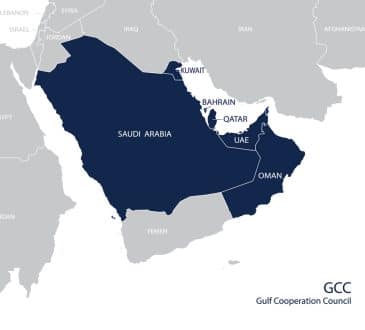Opportunity Unlocked: Investing in the Future

It should come as no surprise that many of America’s CEO’s attended top schools. Twenty-five of the Fortune 500 CEO’s earned degrees from Harvard. Eleven from Stanford. Eight from University of Pennsylvania. Seven from MIT.
You get the idea. It is difficult to reach the top without first obtaining a degree from a top-notch school.
The CEO ladder often begins at a very young age. Many of those same CEO’s had the opportunity to attend an independent secondary school. Independent schools are known for their rigorous academic classes, dedicated teachers, and strong, college preparatory curricula. Attending an independent school is also a way to build social and cultural capital; students at independent schools make connections early on with other future leaders.
For a talented, ambitious, low-income student, attending an independent school can represent the difference between a fast track to success and a life limited and constrained by socio-economic barriers.
Of course, independent schools are expensive, some famously so. Tuition at top schools can be as high as $50,000 a year for high school. However, financial aid is available for students who have the skills to succeed.
As CEOs, we can open the doors of opportunity for low-income students by ensuring they have the opportunity to go to top schools early on.
Unfortunately, the typical low-income family has little information about independent schools. In fact, as I have learned from dozens of conversations with students and their parents, there is a widespread misperception that independent schools – especially boarding schools – are grim military academies.
Parents and students often confuse the world’s best college preparatory schools with the sort of discipline-instilling institutions that use harsh corporal and psychological means to punish and control rebellious teens.
Even when families do recognize the value of attending an independent school, the barriers to entry often seem impossible to surmount. The admissions process is daunting, and the academic expectations very high. Then there are the social and cultural challenges. How is one expected to transition from a failing inner city public school to an Andover or an Exeter?
The good news is there are a number of programs around the country that educate families about independent schools and provide a direct path for high-achieving inner city students to attend them. These programs identify high-potential students; provide “ramp up” preparation so students are able to succeed at an academically demanding independent school; and ensure students have the support needed to transition successfully to a predominantly white, upper-class environment. These programs include Oliver Scholars (the organization I run), based in New York City; NJ SEEDS, based in Newark, NJ; Steppingstone, based in Boston; and Daniel Murphy Scholars, based in Chicago.
The success rate of independent-school access programs is astounding – in large part because the students we serve are astounding. For example, this year my organization, Oliver Scholars, will place about 80 African-American and Latino students with an average family income of $48,000 at private day and boarding schools. Based on our thirty-year performance record, all 80 will graduate high school. All 80 will go to college. More than ninety percent will attend institutions considered “Most Competitive” by Barron’s. Thirty percent will go to Ivy League colleges.
Compare those figures to the national numbers. In 2016, about 23 percent of black and 19 percent of Hispanics between the ages of 25 and 29 had earned a college degree, according to data from the U.S. Department of Education’s National Center for Education Statistics.
Does sending a high-potential African-American or Latino student to a top college preparatory school make a difference?
Just ask Barack Obama, who received a scholarship to attend the Punahou School in Hawaii. Kerry Washington, who graduated from the Spence School on the Upper East Side in New York City or Jeffrey Wright, of HBO’s “Westworld” fame, who attended St. Alban’s in Washington, DC.
Independent-school access programs do not receive the same attention lavished upon charter schools and voucher programs by the media. Yet not many people would argue with the idea that a hard-working, high-achieving student should get an opportunity to attend a good school, especially if it does not cost taxpayer dollars.
Of course, because independent school access programs do not take government dollars, they can only exist if donors support them. Finding talented students, preparing them for success, and providing wrap-around support costs money. Access programs are dependent upon the charitable benevolence of individuals, foundations, and corporations. The good news: every dollar donated to an access program leverages financial aid dollars from the independent schools themselves (and from colleges and graduate schools). For example, every dollar donated to Oliver Scholars leverages four dollars in financial aid for our scholars. Why? Because independent schools and top colleges want students who are motivated, well prepared, and have the support to succeed.
Every day, students of enormous talent and promise fall short of their potential because they are trapped in urban public schools that do not have the resources to meet the needs of high-achievers. Fortunately, there are independent-school access programs around the country hiding in plain sight. With increased support from private donors, these programs can ensure that no gifted student gets lost in the system.
Add CEOWORLD magazine to your Google News feed.
Follow CEOWORLD magazine headlines on: Google News, LinkedIn, Twitter, and Facebook.
This report/news/ranking/statistics has been prepared only for general guidance on matters of interest and does not constitute professional advice. You should not act upon the information contained in this publication without obtaining specific professional advice. No representation or warranty (express or implied) is given as to the accuracy or completeness of the information contained in this publication, and, to the extent permitted by law, CEOWORLD magazine does not accept or assume any liability, responsibility or duty of care for any consequences of you or anyone else acting, or refraining to act, in reliance on the information contained in this publication or for any decision based on it.
Copyright 2024 The CEOWORLD magazine. All rights reserved. This material (and any extract from it) must not be copied, redistributed or placed on any website, without CEOWORLD magazine' prior written consent. For media queries, please contact: info@ceoworld.biz
SUBSCRIBE NEWSLETTER








